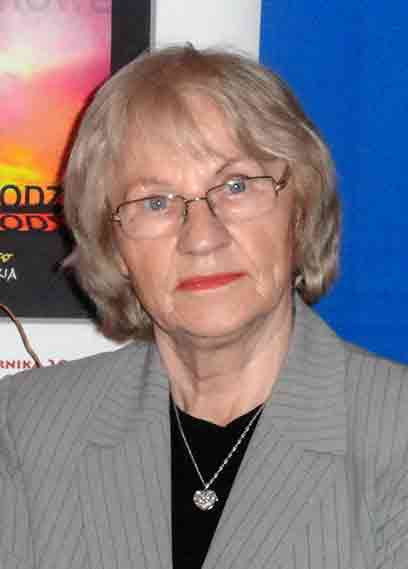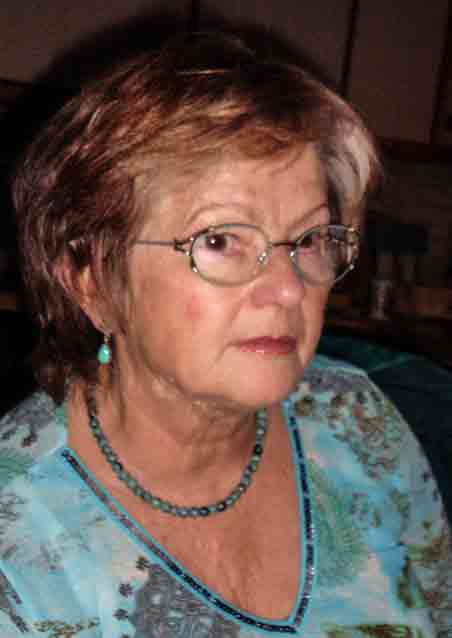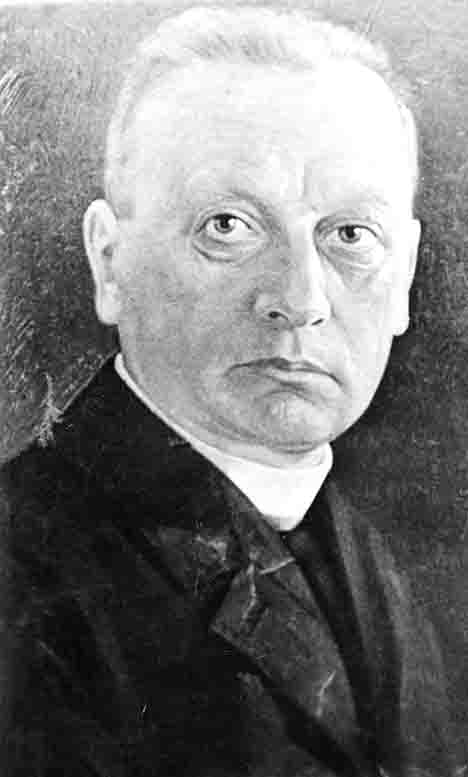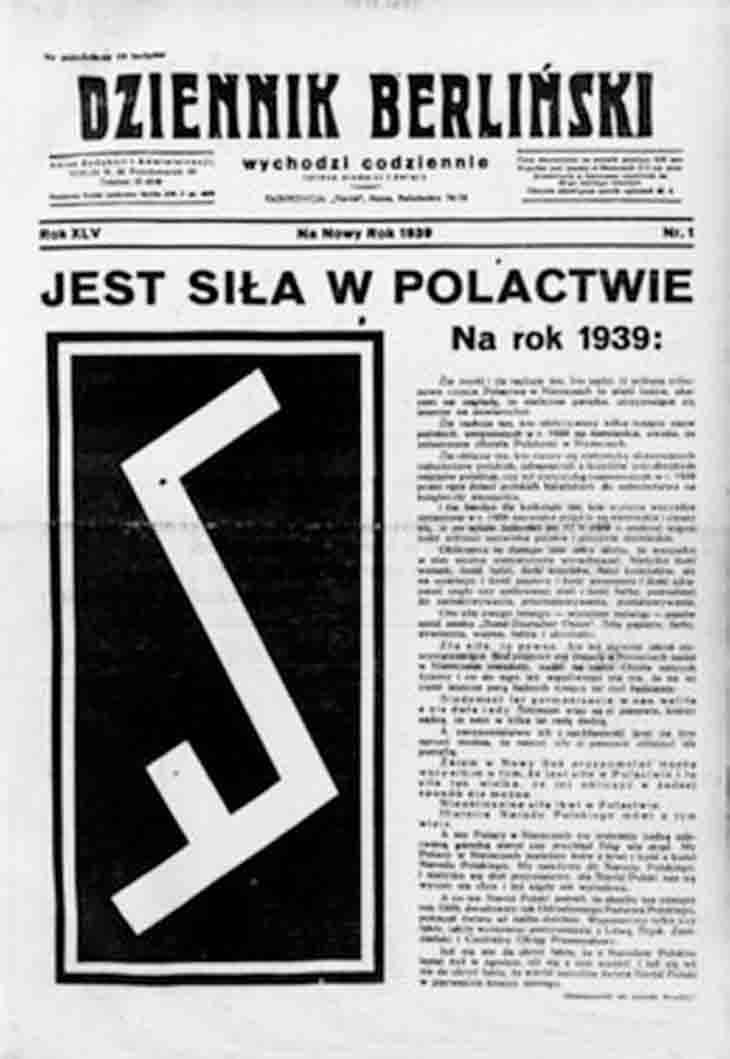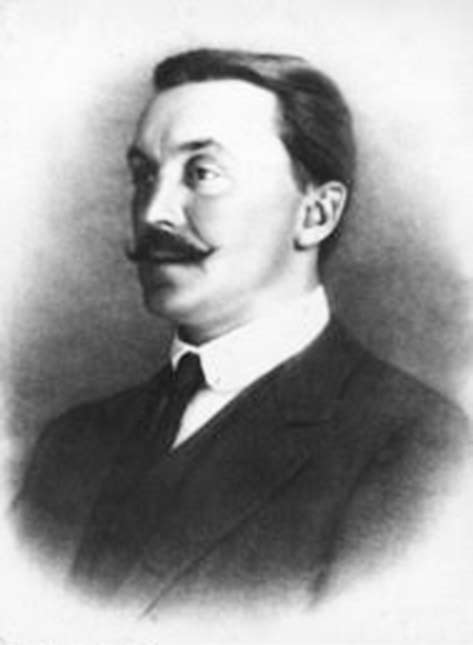Poland and Germany have always been bordering each other, ever since the Middle Ages, ever since the times that shaped their individuality and identity. At a time when the borders between the states had not yet been firmly established, the inhabitants moved freely across the territories of both communities. In later periods, the waves of emigration were caused by economic and political reasons. About 8 million people have moved to Germany from Poland in the last 200 years. It was caused by many factors, such as: an unclear border between Germans and ethnic groups (Silesians, Kashubians, Masurians), multiple shifting of Poland's borders after the partitions and after World War I and II, economic emigration in the interwar period, deportation to forced labor camps during World War II, emigration during the martial law [of 1981], or finally the movement of people after Poland became the member of the European Union.
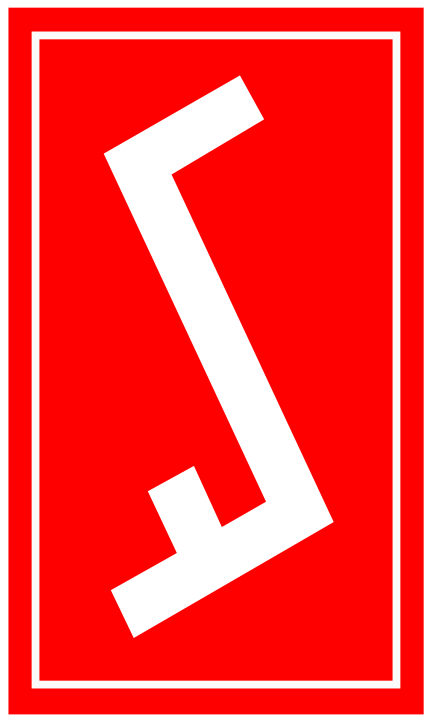
The "Rodło" sign (Source: Wikipedia)
Due to the political and economic situation, there has always been a group of citizens with a sense of belonging to the Polish nation within the borders of the German state, and a group of Polish citizens who identify with the German nation living within the Polish state. The legal bases on which the activities of national minority groups are based are determined by special paragraphs, treaties, agreements and other legal acts. The Poles who, after Poland regained independence in 1918, found themselves within the borders of the German Reich, were concentrated in several industrial centers of Germany and in the ethnic Polish lands. In order to maintain their identity and contact with the Motherland, in August 1922 they established the Union of Poles in Germany (Polish: Związek Polaków w Niemczech [ZPwN], German: Bund der Polen in Deutschland e.V), which was to coordinate the work of all Polish organizations in Germany: cultural, economic, educational, sporting, religious, and political. The headquarters of the Union was then in Berlin. In 1923, ZPwN had approximately 100,000 members. This number continued to increase. The Union conducted extensive economic, cultural and educational activities.
The Slavic Bank, established on February 8, 1933, and the press published in Polish, played a great role in the life of Poles under the sign of Rodło. The bank had an initial capital of 150,000 marks. At the time of liquidation, the capital was raised to half a million marks and its turnover was 30,426,000 marks. It was the central bank of all Polish financial institutions in the Reich. It financed many Polish projects, including two Polish secondary schools - in Będzin and Kwidzyń. It also funded savings accounts for each child born in a Polish family with a contribution of 20 marks. It was the owner of many real estate facilities, such as the house of an academic dormitory in Wrocław, land in Racibórz purchased for the construction of a female gymnasium, and many others. In 1939, just before the German invasion of Poland, the bank was dissolved and its property plundered.
ZPwN initiated the establishment of the Union of National Minorities in Germany, which operated until 1939, to represent the interests of the Polish, Serbian, Danish, Frisian, and Lithuanian communities. With the outbreak of World War II, arrests of members of the ZPwN began. On Friday, August 25, 1939, the German police arrested all students of the Polish gymnasium in Kwidzyń aged 9 to 17, who, together with their teachers, were sent to the so-called "protection camp".
On the basis of the "Regulation of the Council of Ministers for the defense of the Third Reich" of February 27, 1940, the Union was banned and until today its status of a national minority has not been restored. Union members were considered enemies of the Reich. Some of them were shot and about 1,200 people were imprisoned in concentration camps, mainly in Hohenbruch, Mauthausen-Gusen Dachau, Buchenwald, and Sachsenhausen. Material losses incurred by the Polish national minority in Germany, caused by the confiscation of property, are valued at at least 8.45 million marks at the time.
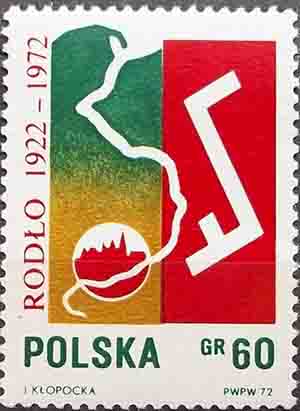
1972 postal stamp with "Rodło" symbol by J. Kłopocka (Source: www.allegro.pl)
After the war, in 1945, the Union resumed its activity. In 1950 it was registered in West Germany. Until 1956, its headquarters was in Frankfurt-am-Main, and since 1956 it has been located in the Polish House in Bochum. In 1950, a group of Poles split from the Union "Rodło", creating a union called "Zgoda", which, unlike "Rodło," maintained contacts with the communist government in Warsaw. In 2015, "Zgoda" ceased to exist.
The Union of Poles in Germany under the sign of "Rodło" is the oldest Polish organization in Germany. The current union is the historical and property heir of the ZPwN from before the war.
From 2013, the president of the Union is Józef Malinowski and from 2020, the Union is a member of the EUWP (European Union of Polish Communities) with observer status. In 2022, the Union will celebrate its 100th anniversary. Currently, the structure of the Union is based on a three-person Board that manages the work. The General Council, consisting of five people, is responsible for the program activities. One of its members is the President - Józef Malinowski. Currently, ZPwN operates through local branches. They exist in: Berlin, Hamburg, Bremen, Moenchen, Gladbach, Kleve, Duisburg and Bavaria, and the next one is currently being organized in Hanover.
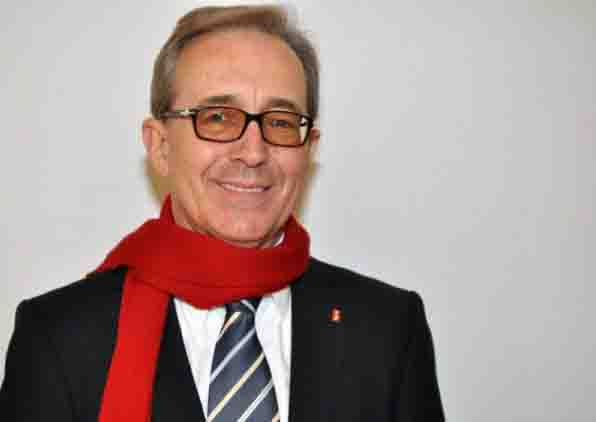
President Józef Malinowski (Source: www.zpwn.org)
Józef Malinowski was elected Union's president in May 2013. He belongs to the group of a new generation of immigrants. His stay in West Germany dates from 1981. He was granted political asylum in 1983. From the very beginning, as befits a Pole and a Polish father, he joined the activities to promote the Polish language in Germany. His children learned their native language at the Polish School Matrix, in which he himself was active. In 1983 he became a member of the Board of the Matrix, and in the years 2002-2013 he was its president. To date, he is its senior vice-president. He is a permanent representative of the Roofing Organizations [1] at the Polish-German intergovernmental talks at the "round table" regarding Polish diaspora education. Since 1986 he has been running an independent construction company and engineering office.
Currently, the most important goal of the Union is to regain the status of a national minority that was lost in 1940, to return confiscated real estate and all seized property. After the war, the Union did not regain anything, except one of the houses in the Ruhr region, in Bochum, at Klosterstrasse, where the rich life of the German Polish community was concentrated in the interwar period. The union's efforts to regain other property failed. The return of the bank's assets was denied on the grounds that only reunified Germany could decide on it. Germany has been united for over 30 years now, but still does not show good will and refuses to settle the problem. The same applies to the recognition of the victims of the Union as Nazi victims.
In the 1980s, the Union of Poles in Germany (under the sign of Rodło) actively supported Polish society materially and morally.
Status - and the Treaty
On June 17, 1991, the Federal Chancellor Helmut Kohl and the Polish Prime Minister Jan Krzysztof Bielecki signed in Bonn the "Treaty on Good Neighborly Relations and Friendly Cooperation". This treaty confirms the respective obligations of both states towards the German minority in Poland, and the Polish minority and Polish-speaking German citizens in Germany. An important element of the treaty is the equal treatment of the German minority in Poland and all Poles in Germany, i.e. members of the Polish minority in Germany and their descendants, and Poles who emigrated to Germany. Article 2, paragraph 3 of the Treaty stipulates that the German and Polish minorities in both countries are to be perceived as "a natural bridge between the German and Polish nations". Articles 20-25 define the regulations on the equal treatment of the German minority in Poland and the Polish minority or Polish migrants in Germany.
The Union does not believe that the conclusion of this treaty is a satisfactory solution to the Polish side of the problem, and the establishment of the "Porta Polonica" Documentation Center [2] is only an acknowledgement of the matter, but not a solution to it. After long discussions, the federal government recognizes (at least according to the letter of the Treaty) the right of all Poles in Germany to "equal privileges" enjoyed by the German minority in Poland. The fact that there is a "Polish minority" in Germany was mentioned in 2010 at a meeting in Darmstadt by the (former) German President Wulf, but after analyzing the Polish context of this phrase, it turned out that "the president made a slip of the tongue"...
The signing of the treaty on "good neighborhood and friendly cooperation" is described by the Union as insufficient proof of recognition of the rights of Poles living in Germany, even more so, as no specific actions have emerged from the German side since its signing. There can be no question of the existence of "equal privileges", therefore ZPwN demands "symmetry" and "proportionality" in the treatment of the German minority in Poland and the Polish minority or Polish-speaking German citizens/residents in Germany within the meaning of the Polish-German Treaty, i.e. such support for Poles in Germany as given to the German minority in Poland and depending on the number of people included in a given cultural group. Jarosław Kaczyński spoke very clearly about the existence of inequalities in the rights of both minorities during his visit to Opole in December 2012. He then said: "Germans in Poland should have as many rights as Poles in Germany". How this symmetry looks in reality can be seen below.
Appalling Discrimination of Poles in Germany
| Germans in Poland | Poles in Germany |
|---|---|
| They have an official minority status | They don't enjoy such status |
| They are represented in the Sejm (the Polish parliament) | They have no representatives in the Bundestag (the German parliament) |
| They have their schools financed by the Polish authorities | The German government does not support Polish education in Germany |
| They can put the German versions of place names on official boards | Poles in Germany do not have such a privilege |
| They can speak German freely at home and even in municipal offices | Polish children in Germany are sometimes banned from using Polish and are being forcibly Germanized |
On the initiative of the Union of Poles in Germany, Berlin attorney Stefan Hambura sent a letter to Chancellor Angela Merkel in August 2009, demanding that the current status of the Polish minority in Germany be regulated. In the official reply of the Federal Ministry of Justice, the federal government confirms that the ban on the activities of the Polish minority organization in Germany, represented by the Union of Poles in Germany, was legally invalid from the very beginning and therefore their status still holds. Unfortunately, in the correspondence between the Union of Poles in Germany and Stefan Hambura, there is no appropriate document confirming the words "their status still holds", and the attorney Hambura has been dead for a year and a half. He died on May 2, 2020 of a heart attack during a visit to Warsaw. The document remained in his Berlin office and is unavailable to the Union of Poles in Germany.
We will try to present how the problem is interpreted by the German side in the next article.
To be continued.
- On August 20, 2010, the Permanent Conference of Roofing Organizations of the Polish Diaspora and Poles in Germany was established.
- The Documentation Center "Porta Polonica" in Bochum was established in 2013 on the initiative of the Round Table meeting in 2011, on the occasion of the 20th anniversary of the signing the Polish-German Treaty of Friendship.
Translated from Polish by Andrew Woźniewicz.
This article was modified on October 11, 2021: The comparison table that was originally missing, was added.



